In today’s times, one of our biggest daily needs has become a car ride. Till now we were dependent on petrol-diesel vehicles but now automobile companies have started electric cars which will not only free us from pollution but will also free us from petrol-diesel forever. But amidst all this, is it right to buy an electric car or not? In this blog, through the Electric Car Buying Guide, we will tell everything in easy language with details so that you do not feel any hesitation in buying a car. I mean what is the right time to buy an EV, what is the truth of the myths related to battery range and charging, and how to take full advantage of government schemes etc.
What Is an Electric Car?
So far you must have heard or seen vehicles running on petrol or diesel, but in this changing era, EVs have brought a new revolution. Yes, let us tell you that EV means Electric Vehicle. A vehicle that runs on a motor instead of an engine, and takes power from the battery instead of fuel. And the special thing is that they neither spread pollution nor do they have noise problems. EVs are not only stylish, but their pick-up is also tremendous! Their torque is so fast that they leave many petrol cars behind in terms of acceleration. EVs come with great features like regenerative braking, smart navigation, app-controlled charging and much more.
Types of Electric Vehicles
Currently there are three types of electric vehicles – BEV, PHEV and HEV. Let us know about these in detail.
1. BEV (Battery Electric Vehicle)
BEV means Battery Electric Vehicle. These vehicles run completely on battery, that is, they do not require petrol or diesel. In these vehicles A large battery is installed, which after charging, powers the motor.
Example: Tesla Model 3 or Tata Nexon EV – both of these are completely battery-powered vehicles. You charge them like a mobile phone and then they can run for several hundred kilometers without any petrol or diesel.
2. PHEV (Plug-in Hybrid Electric Vehicle)
PHEV means Plug-in Hybrid Electric Vehicle. These types of vehicles have the option of both battery and petrol. You can also charge them, but when the battery runs out, the petrol engine takes over.
Example: Toyota Prius Plug-in – This vehicle can run on battery for some distance (say 40-50 km), and then the petrol engine starts automatically. Meaning if you are traveling a short distance, then you may not need petrol at all!
3. HEV (Hybrid Electric Vehicle)
HEV means Hybrid Electric Vehicle. These types of vehicles have a battery but you cannot charge it. This battery itself is charged by the engine and brake system, i.e. when the vehicle moves slowly, the battery works and at high speed, the engine works. They use both battery and petrol engine.
Example: Honda City Hybrid, Toyota Camry Hybrid – This vehicle runs on battery at low speed in the city and as soon as there is a need to drive fast, the petrol engine becomes active. In this you do not have the hassle of charging the battery, everything is automatic.
Why Choose an Electric Car?
Why should we buy an electric car? It is very important to know some things, so read this article completely.
A Boon For The Environment – Zero Emission
Today, you cannot imagine how much damage we humans are causing to this earth with our current vehicles. If we talk about an average petrol or diesel car, it emits about 4.6 tonnes of carbon dioxide in a year, which is affecting our health, children’s lungs and the breath of this earth. You can guess how harmful it is for our future generations. On the other hand, if we talk about electric cars, then there is no smoke, no carbon, no poisonous gases, they just run peacefully and do not harm our environment at all. They do not make noise either, due to which noise pollution in cities is also reduced.
Not Heavy on the Pocket – Low Running Cost
In this era of rising inflation, the prices of petrol and diesel are skyrocketing every day, which is directly affecting our pockets. Currently, the cost of running a petrol car for one kilometer ranges from ₹6 to ₹8, but if we talk about EV, it comes to just ₹1 to ₹1.5. So imagine, if you drive even 30-40 kilometers daily, you can save thousands in a month. And if we add up the calculation for the whole year, then this saving can reach lakhs of rupees.
Nearly Maintenance – Low Maintenance Cars
Electric cars do not have complex and expensive parts like engine, clutch, gearbox, due to which you are saved from the hassle of servicing every 6 months and the cost of oil change. You just have to take a little care of the health of the battery and motor. Like getting a checkup done from time to time and being careful while charging. If both these things are fine, then your electric car will run smoothly for years without any hassle.
Power of AI Technology
The current era is of AI integration and all the EVs that are being launched at present have AI features which connect to your smartphone apps. That is, you can easily know every small and big information of your car, like how much battery is left, what is the charging status, or where the car is parked. Not only this, with technology like regenerative braking, your car charges the battery on braking itself.
Government Support – Subsidy and Tax Exemption
The Government of India and many state governments are running great schemes to promote the adoption of EV. First of all, let’s talk about
FAME-II subsidy – This is a government scheme under which you get a direct discount on buying a new electric vehicle. That is, the on-road price of the vehicle is much lower than before.
Road tax exemption – In many states, road tax on EV is either completely waived or is charged very less. This also reduces your registration cost. Not only this, registration fees have also been waived in many places. Imagine, this is a big relief in the amount of money spent at the time of buying a vehicle.
Charging station: For those people who want to set up EV charging stations, the government is helping there too. Many things like land, subsidy, and technical guidance are being offered so that EV infrastructure can be strengthened.
How to Choose an Electric Car: Before Buying Definitely Know These 5 Things
If you are also thinking, “Should I buy an electric car or not”, then before that it is very important for you to understand some things because only a well-thought-out decision is acceptable. So let’s know,
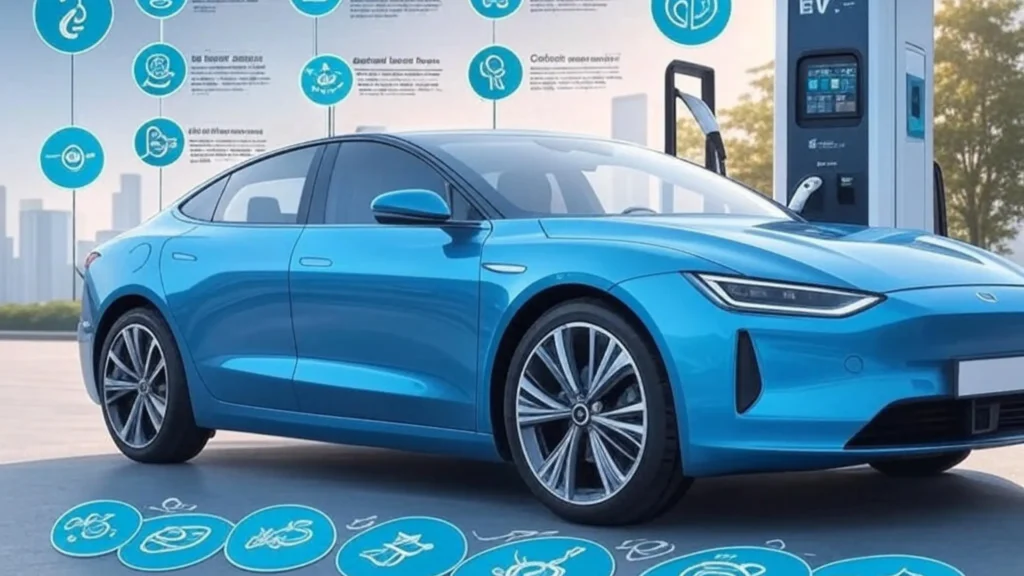
What is your Daily Usage?
If your daily driving is around 40–60 km, then you will not need a bigger battery or longer range. But if you travel long distances every weekend, then you need an EV whose range is 300–500 km or more and also supports fast charging.
Is there a Charging Facility or Not?
In today’s era, it will be right to buy an EV only if there is a charging facility near you or around you, otherwise your problems may increase. But do not panic because many EV companies offer free home charger installation. That is, as soon as you buy a car, a charger will be installed at your home for free. So before buying a car, definitely check whether this facility is available in your brand or not, otherwise you may regret later.
What is your Budget?
Whenever we talk about buying any vehicle, the first thing that comes to mind is the budget because everything is decided by it. So let us tell you that at present the price range of electric cars in India starts from about ₹ 10 lakh and goes up to about 50 lakh, in which cars like Tata Tiago EV, Tata Nexon EV, Mahindra XUV400, Hyundai Ioniq 5, Kia EV6 and BYD Seal are present. So you should go according to your budget and choose a good EV.
How much Seating and Luggage Space Do you Need?
While buying any car, we definitely check its seating capacity and luggage space, if it is found correct then it becomes icing on the cake. So choose an EV with good seating capacity according to your need. There are 4-seater, 5-seater, and 7-seater electrics available in the Indian market.
Electric Car Safety Features
In today’s time, while buying an electric car, it is also important to know about some features so that you can easily choose the one equipped with the best features, Like Sunroof: Whenever we think about buying a car, the fun of a car with a sunroof is different, so definitely check these features in your favorite car.
- ADAS (Advanced Driver Assistance System) – You can also call this feature the safety expert of the car. In today’s new cars, this system works as if there is an intelligent co-pilot sitting. As soon as a car comes in front, ADAS applies the brakes itself. If you have to change the lane, it adjusts the steering a little bit itself. With the arrival of this feature, driving on a long drive has become a little comfortable.
- Infotainment Screen – The large touchscreen infotainment displays that come in today’s EVs are not only great in appearance, but using them is also equally fun. Suppose you are out for a drive – if you want to know the route, start navigation, if you want to listen to your favourite song, turn on the music, and while reversing, you can see what is happening behind you in HD quality.
- Connected Technology – Now the time has come when your car is not controlled just by the start button, but by your mobile. Download an app and then start the car from a distance, lock-unlock it, know the charging status, even if the battery is about to run out, you get an alert.
Battery & Range
When it comes to electric vehicles, the biggest question is how long will the battery last and how far is its range? The average battery size of the electric cars coming in the Indian market ranges from 20kWh to 60kWh. This means that these vehicles can run for about 150 to 500 kilometers in a single charge, but this also depends on your usage.
Now if you drive only within the city, like commuting to office or going out for shopping, then a range of about 200-250 km is enough for you. But if you have to travel a long distance on the highway, then it is necessary to have a range of at least more than 350 km, so that you do not have to charge it again and again on the way.
Charging Infrastructure in India
Before buying an electric car, we need its charging facility first. EV charging infrastructure is growing rapidly in India, but still many people are confused whether it is better to charge at home or take the help of public charging stations.
Electric Car Charging at Home Setup
Charging at home is considered to be the easiest and most economical method, especially if you have your own vacant land and a wall mounted charger. This not only makes charging faster (full in 3-5 hours) but also eliminates the need to look for a public station again and again. You can easily charge the car at night just like you charge a mobile phone. Some electric car companies like Tata, MG or Hyundai also provide this wall charger installation facility with the new car.
Public Chargers
Nowadays you can easily find the nearest charging stations on the apps of big companies like Tata Power, Ather, Statiq, ChargeZone, EV Plugs and Zeon or even on Google Maps. Just open the app, search for the station, and go there and charge. Some charging stations are also located in restaurants, malls or office parking lots, so you can carry on with your work while the car charges.
Electric Vehicles Charging Stations Cost
Charging costs can vary from location to location. Charging at home costs an average of ₹6–₹8 per unit, while public chargers can cost up to ₹15–₹25 per unit, especially if it is a fast charging station. Public charging is convenient, but can also be a bit expensive.
Performance & Driving Experience
One of the most special features of the performance of an electric car is the torque features given in it. That is, as soon as you press the accelerator, the car immediately picks up speed. There is no need to change gears, no engine sound, just its quiet and smooth driving experience feels quite relaxing. Apart from this, it has a regenerative braking system which stores the energy generated by your brake back into the battery. This increases the range of your battery a little more. The location of the battery of an electric car is below the car. This keeps the center of gravity of the car low, due to which the car remains more stable and under control on turns.
Electric Car Maintenance Tips
Electric cars have lower servicing costs than petrol-diesel cars. These cars have fewer moving parts, such as the engine, transmission, and exhaust system, which require more maintenance than in conventional cars.
Electric Car Servicing Intervals
Servicing intervals for electric cars are longer than conventional cars. Typically, EVs require servicing after every 15,000 to 20,000 km, while petrol or diesel cars require servicing after every 5,000 to 10,000 km.
Electric Car Servicing Costs
Electric cars also have lower servicing costs as they do not require engine oil changes, transmission fluid replacements, or exhaust system maintenance. Normal servicing costs can range from around ₹1,500 to ₹4,000, while for conventional cars it can be ₹5,000 to ₹10,000.
Electric Car Battery Warranty Terms & Replacement Cost
The most important part of an electric car is its battery. Most EV companies in India offer a warranty of up to 8 years or 1,60,000 km on their batteries so that you do not have to worry. If there is any problem with the battery, the manufacturer takes the responsibility of replacing it for free. But to increase the life of the battery, it is best to charge the battery between 20% to 80%. Let us tell you that if the battery gets damaged, the cost of replacing it can range from ₹60,000 to ₹1,50,000.
Electric Car Saving on Fuel and Maintenance
Electric cars are much cheaper than petrol and diesel cars. EVs only cost ₹1 to ₹2 to travel one kilometer, while in conventional cars it can be ₹6 to ₹10. Apart from this, these cars do not require engine oil or transmission fluid, which also saves you a lot of money. If you use the car for 5 to 10 years, then your expenses can be reduced drastically compared to a petrol or diesel car.
Government Subsidies For Electric Cars
Many schemes and subsidies are being provided by the Government of India to promote electric vehicles (EVs). The main objective of these schemes is to reduce pollution, reduce dependence on petrol and diesel, and save the environment. If you are also planning to buy an electric car, then it is very important for you to know about these government schemes. Let us know how you can take advantage of these benefits.
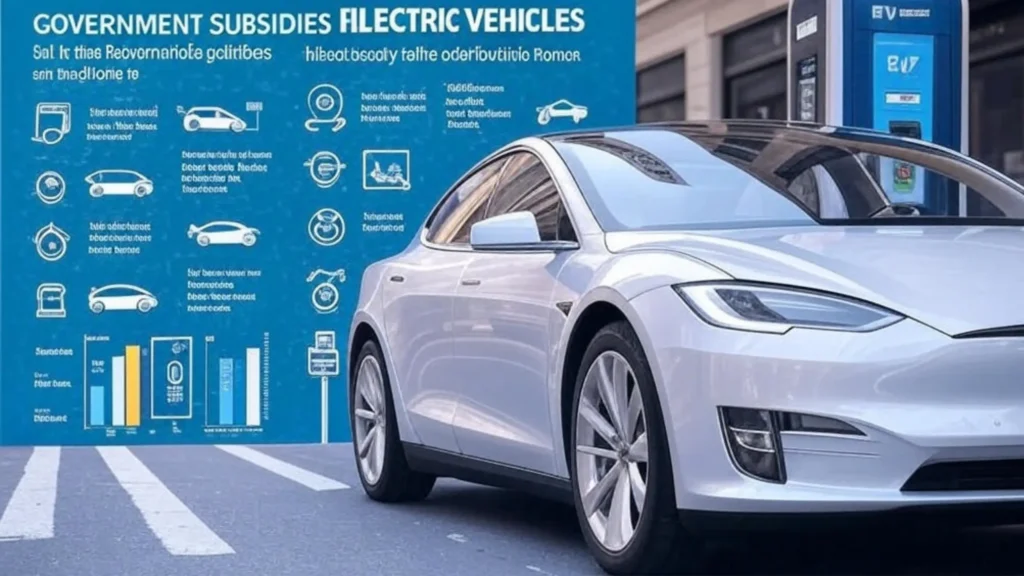
FAME II Scheme (Faster Adoption and Manufacturing of Hybrid and Electric Vehicles)
The Government of India launched the FAME (Faster Adoption and Manufacturing of Hybrid and Electric Vehicles) scheme for electric vehicles, the main objective of which is to promote electric and hybrid vehicles in India. The FAME II scheme has been implemented specifically from 2020 to 2022 in which the government has made a provision to give subsidies on the purchase of electric cars. This reduces the prices of EVs and makes them affordable for the common people. This scheme provides financial assistance not only for cars but also for electric buses, two-wheelers and three-wheelers. Apart from this, under this scheme, the government also promotes charging infrastructure, which makes it easier to charge electric cars.
State-wise Electric Vehicle Benefits
Apart from the Centre, state governments have also made several schemes to promote electric vehicles under which they provide road tax exemption, registration fee exemption and other benefits. Below are the names of some states
- Delhi: The Delhi government has released a Rs 1,000 crore EV policy to promote electric vehicles, providing full exemption in road tax, registration fee and free charging for 5 years.
- Maharashtra: The Maharashtra government has announced a subsidy of up to Rs 25,000 on electric vehicles, along with a waiver on registration fee.
- Uttar Pradesh: The UP government has planned special subsidies for EVs, exemption in road tax, and financial assistance for setting up charging stations.
- Telangana: In Telangana, the state government has made a special scheme for electric vehicles, which provides exemption in road tax and registration fee.
- Tamil Nadu: The Tamil Nadu government has also launched special incentive schemes for EVs, which include discounts and subsidies as well as promotion of charging infrastructure.
- Bihar: The Bihar government has also started special incentive schemes for EVs, under which you can get subsidies on electric two-wheelers and four-wheelers under the EV policy.
How to Avail These Schemes?
You can easily avail the benefits of this scheme issued by the government, the guidelines of which are given below
- For this, first of all you have to select the eligible model which comes under the FAME II scheme and state government schemes. If you want to know, then for this you have to get information on the official website of that vehicle or from the dealer.
- You will get an application form for subsidy or discount, in which you have to fill your details. After this, if your electric car or scooter comes under the scheme, then you will get a subsidy or discount.
- If you want to get a charging station installed at home, then you can also get grants or assistance from the concerned state or central government.
- When you buy an electric vehicle, you will get a discount in registration fee. This will reduce the cost of your purchase.
Key Questions to Ask Before Buying
- Battery lifespan: The heart of any electric car is the battery which affects its lifespan. Whenever you go to buy an electric car, the first question to ask is what is the warranty of the battery? Is there a free replacement or any kind of support on the battery? Will there be any additional cost on the battery? Does the company replace the battery when the charging capacity of the battery is low?
- Fast charging support: While buying an electric car, definitely ask whether there is a fast charging facility or not. Usually it takes time to charge an EV battery, and when you go on a long journey, the charging speed becomes important. Efforts are being made to make DC fast charging stations available everywhere for electric cars. This can charge your battery very fast (10%-80% in just 30-45 minutes).
- Nearest service center: Another important question while buying an electric car is the availability of a service center. Before buying an electric car, definitely ask where the service center is and how far is the service center from you. Because servicing an electric car requires a specialized service center. Electric cars may have different technical problems than regular cars, such as battery charging, motor servicing, software updates, etc. For all these, you need a service center nearby.
- Real-world range of the car: While buying an electric car, do ask about its actual range because companies claim maximum range for their cars, but this range is based on test cycles like WLTP (Worldwide Harmonized Light Vehicles Test Procedure) or NEDC (New European Driving Cycle). In real life, this range can be more or less depending on the use of the car.
Pros And Cons of Electric Vehicles
There are still many myths about electric cars (EVs) due to which people are hesitant to buy a car. Let us know what those myths are:
Electric Cars are Not Slow
Many people believe that electric cars are slower than petrol and diesel cars. They believe that electric cars do not have as much power and speed as conventional cars. But this is absolutely wrong! Electric cars are actually very fast and powerful. EVs have the advantage of Instant Torque, which makes their acceleration very fast. For example, the Tesla Model S can accelerate from 0 to 100 kilometers per hour in just 2.5 seconds!
Batteries Don’t Need Frequent Replacement
Many people believe that the batteries of electric cars get damaged very quickly and need to be replaced frequently. Many people also think that once the batteries fail, the entire car will have to be replaced. But this myth is completely wrong. Electric car batteries are very strong and long-lasting. For example, Tesla’s battery has a lifespan of up to 8 years and it degrades very little.
You Don’t Always Need Fast Charging
Most people believe that fast charging is always required to charge an electric car. They think that EVs can be charged at fast charging points all the time, which is completely wrong. You can keep the charging facility as per your requirement. Most EVs can be charged at home. Usually, charging overnight fully charges the battery, and then your car is completely ready the next day. But if you are going on a long journey, then the facility of fast charging comes in handy.
Electric Car Test Drive Checklist Before Buying
Before buying an electric car, do check the final checklist given here
Test Drive: Know the Real Feel of the Car
You know that before buying any car, it is very important to take a test drive, which gives you all the conditions of the car like: range of the car, top speed, braking system, suspension and comfortable experience of the cabin etc. So you must test drive your favorite EV.
Check the Charging Facility Near Home
Before buying an electric car, do check whether there is a public charging station somewhere near your home or work. Because if you have to travel long distances to charge your car again and again, then it can put you in trouble. If you are going to buy a Tesla, Tata, or any other EV model, then it is important that you have the facility of charging point at home.
Compare your Total Cost
Electric cars can be a bit expensive in a certain initial cost, but the expenses after that are very low. You get relief from petrol or diesel prices, as well as the maintenance cost is also very low. But, you should not just look at the initial price. You also have to take into account the battery life, servicing and other expenses of the vehicle. Apart from the price of the vehicle, also evaluate expenses like charging cost, tax, insurance and certification fees.
Read Verified Customer Reviews
Nowadays, there are a lot of car reviews and feedback available on the Internet, but do you know that the things mentioned about the car in the advertisement are not always true? Therefore, it is very important to read verified customer reviews. Customers definitely share their real opinions on the Internet and on social media. Their reviews will help you understand what are the good features of the car and where some improvements may be needed. From the customer reviews, you can know what is the range of the car, how is the charging time and whether there have been any problems in the car.
Conclusion
Overall, if you are thinking of buying electric vehicles (car, bike) etc. then this is a commendable step on your part. In the last few years, the prices of electric cars have also come down, while now due to the subsidy given by the government and new technology, electric cars have become an affordable option. Their range, charging time, and performance have also improved a lot now, making them an attractive option for buyers. In today’s changing times, everyone wants that their expenses should be less and the benefits should be more, so buying an electric vehicle is a better option for you.
FAQs
1. Can I charge an EV at home?
Ans: Yes, you can easily charge your electric vehicle (EV) at home. First, you need to install a special charging point (Wall Charger). This charger is connected to your home’s electrical system, after which you can comfortably charge your EV at home.
2. Is it expensive to charge an EV at home?
Ans: The cost of charging depends on your electricity bill. If you charge at home, it is much cheaper compared to petrol or diesel. You just need to ensure that your home has the proper charging facilities and that you choose the right charging hub.
3. What is the lifespan of an EV battery?
Ans: EV batteries typically last around 8-10 years, but this depends on the model of your car, the battery technology, and your driving habits.
4. Are electric cars good for long trips?
Ans: Yes, new electric cars have improved range so much that you can easily take long trips without any issues. For example, some models offer a range of 400-500 kilometers, which is more than enough for a decent journey on a single charge.
In the Electric Car Buying Guide, we’ve covered everything you need to know. We hope this information will help you in buying an electric vehicle. Stay with us and make sure to check out the upcoming updates and news on our site, EVWorldGuide.com. Thank you!

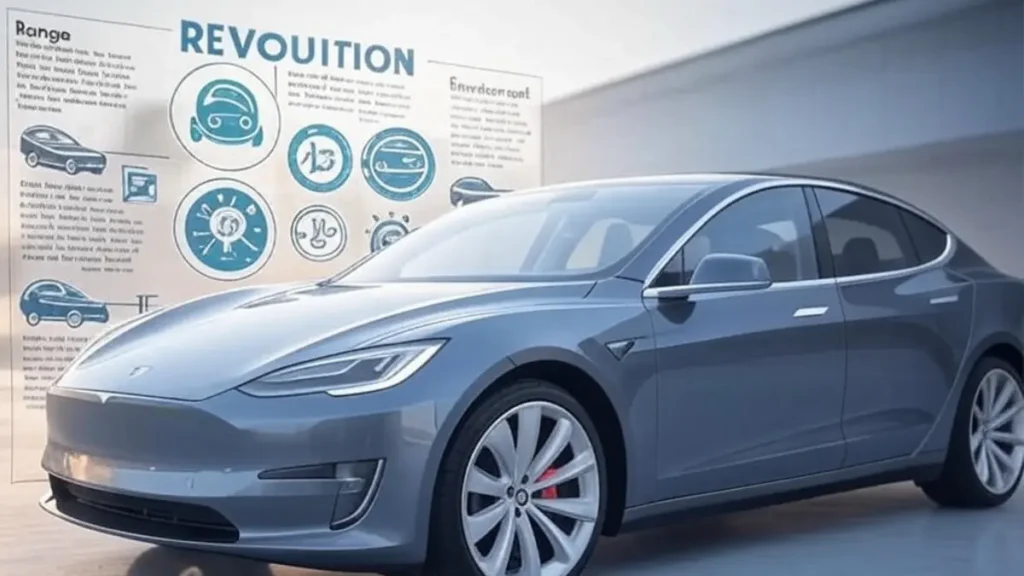
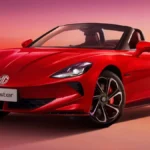
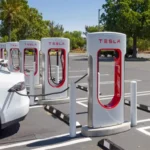
Pingback: Ultimate Guide to Electric Vehicles Charging Station
Pingback: The Ultimate Guide to Fast Charging EV Stations - evworldguide.com